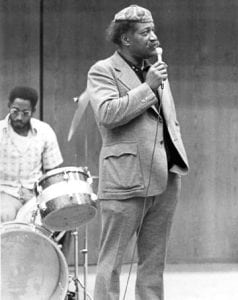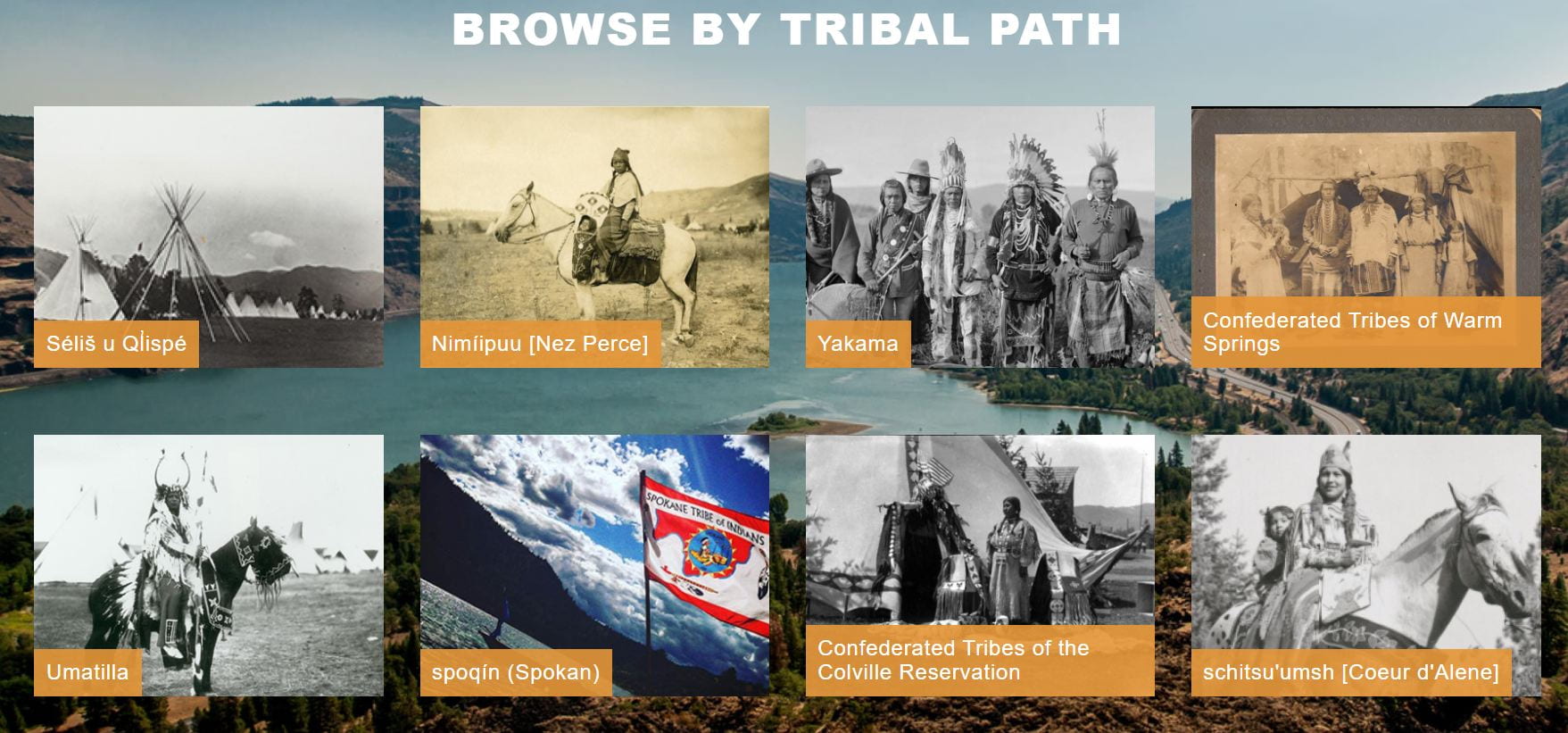March 29, 2024
Archival Silences and Sounds @ the UW Ethnomusicology Archives
Founded in 1962, the UW Ethnomusicology Archives is home to more than 80,000 rare and unique films, videos, and sound recordings. One of the largest archives of its kind in North America, its collections represent a kaleidoscopic of array of sounds and styles from around the world, and around the block. A part of Libraries Special Collections since 2022, its curator, John Vallier, has been working on a variety of projects, a selection of which are described here.
“Silences enter the process of historical production at four crucial moments: the moment of fact creation (the making of sources); the moment of fact assembly (the making of archives); the moment of fact retrieval (the making of narratives); and the moment of introspective significance (the making of history)… (Michel-Rolph Trouillot in Silencing the Past: Power and Production of History (1995).
Ethnomusicology archives have since their inception documented the sounds and stories of marginalized and minoritized peoples. Despite such efforts, these archives–like all archives–are full of gaps, or “silences” as noted by Trouillot. In an effort to address such archival silences, the Archives occasionally acquires new collections that refocus attention on the sonic legacies of musicians and researchers working on the cutting edge margins of their fields. These recent additions to the Archives are examples of such efforts.
Recent Acquisitions

Image: Joe Brazil, January 3, 1967
Joe Brazil Collection: over 2,000 items includes unique recordings of Miles Davis, Art Blakey, McCoy Tyner, Elvin Jones, and many others.
Joe Brazil (1927-2008) was a saxophonist, founder of Seattle’s Black Academy of Music, and the first Black faculty member in the UW School of Music whose tenure was controversially denied in 1975. He played saxophone with a pantheon of jazz greats, including John Coltrane. His recently acquired collection of over 2,000 items includes unique recordings of Miles Davis, Art Blakey, McCoy Tyner, Elvin Jones, and numerous other jazz masters. While it will be some time before his collection is processed, preserved, and made available to researchers, progress is already being made. The Archives and Special Collections are honored that his family entrusts the Ethnomusicology Archives and Special Collections with preserving and providing access to his legacy.

Image: from a performance by Mexican-American musician Lydia Mendoza on 12-string guitar. Filmed by Robert Garfias in 1978 (entire film available here)
During his academic career, Professor Robert Garfias founded the UW Ethnomusicology Program, was appointed to the National Council on the Arts and served as a member of the Council of the Smithsonian Institution. During his extensive career, Garfias conducted significant periods of fieldwork and language study around the world, including in Japan, Korea, the Philippines, Mexico, Zimbabwe, Guatemala, and Spain. This past February, he donated to the Archives over 10,000 photographs taken during many of these fieldtrips. While these images await processing, a selection of his related field recordings and films are available online via Adam Matthew’s Ethnomusicology Field Recordings Online and the Libraries Internet Archive portal.
Digital Projects
Digitization allows us to preserve and make accessible cultural heritage materials for generations to come; however, the resources to do so at scale are often limited. Community partnerships help bridge that gap, while also expanding access to a broader audience.
Native Northwest Online: 20,000 unique objects digitized so far

https://plateauportal.libraries.wsu.edu/
With considerable help from many across the Libraries, the Archives continues to steward UW’s contribution to Native Northwest Online, the $334,000 CLIR funded partnership led by Associate Vice Chancellor and Professor Kimberly Christen of Washington State University. Nearly 20,000 unique objects from UW Libraries have been digitized as part of the project so far. Many of these have been uploaded to the Plateau Peoples’ Portal where they are being reviewed and assessed by representatives from nine participating Tribes: Confederated Tribes of the Colville Reservation; Confederated Salish and Kootenai Tribes; Spokane Tribe of Indians; Confederated Tribes of Warm Springs; Nimíipuu (Nez Perce) Tribe; Quinault Indian Nation; Schitsu’umsh (Coeur d’Alene); Snoqualmie Indian Tribe; Yakama Nation. Using the Mukurtu CMS and the Mukurtu Metadata Transformation Toolkit, each Native partner will review, update metadata, assign protocols for access and Traditional Knowledge Labels to digitized content. This information will be shared with the non-Native repositories, including UW Libraries, thereby providing a direct and sustainable pathway for ongoing digital returns, and culturally enhanced public records.
The Hiromi Lorraine Sakata Collection

Gulu playing the chang in Dai Kundi, Hazarajat, Central Afghanistan (1972). From the Hiromi Lorraine Sakata Collection.
Hiromi Lorraine Sakata is a retired UW ethnomusicologist whose work focused on Central Asian music and culture. Beginning in the 1960s, Professor Sakata conducted extensive fieldwork across Afghanistan and Pakistan as part of her dissertation research. Over the course of many years and several trips to the region, she amassed large collections of field recordings, photographs, and other materials, all of which she donated to the Archives. A selection of some 900 items from these collections, which also include footage of famed Pakistani qawwali singer Nusrat Fateh Ali Khan, are now published on Ethnographic Sound Archives Online and Soundcloud.
Fun Fact: Sakata’s Field recordings of traditional Afghan music recorded in the late 1960s and early 1970s have been added to the National Recording Registry of the United States Library of Congress. Learn more.
Inside and Outside the Classroom

A video still from Nirvana’s 1991 performance at the former Beehive Music & Video (809 NE 45th Street), now a PetCo.
In addition to being the Archives’ curator, John Vallier is an affiliate faculty member in Ethnomusicology and the Department of Comparative History of Ideas (CHID). In his role as faculty, Vallier offers courses on a range of topics. This quarter he is teaching a new class for Comparative History of Ideas (CHID) called Grunge is for Lo$ers. Undergraduates in this class are interrogating
Seattle’s alternative music history while contributing to the development of the Archives’ Seattle Sounds Archiving and Preservation Project (SSAPP). Guest speakers, interviews, archival sound recordings, and the newly digitized Rocket newspaper are informing student projects and contributions to the Archives.
Lastly, the Archives is excited to announce that a group of UW students have formed a new Archives-focused student group called Vault Sounds that they describe as an “ethnomusicology listening club.” This Monday, April 1, the group will be holding its first listening session in Allen Auditorium, located on the ground floor of Suzzallo-Allen Library. The event starts at 4pm. More information about the club is available here.
To learn more:
- check out our Instagram.
- browse the Archives online and check them out on Instagram.
- School of Music Ethnomusicology
###

